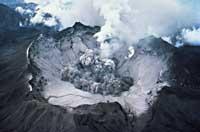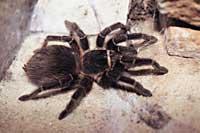The dog barks here!

Lately it has been on everyone's lips the instinct of animals to detect disasters by the tsunami that reduced the coast of Southeast Asia. They say the terrible pleamar killed very few animals, including cows and other domesticated animals, but few wild animals have found themselves dead after the tsunami.
The clearest proof of this fact is found in the Yala National Park. Yala Sri is located in Lanka, on the coast, an ancient humid and rich tropical. It is the largest nature reserve in Sri Lanka. There live many species of plants and animals, and one of the most attractive is the leopard. Every year many visitors come to this protected area to visit their leopards, elephants and other fauna.
When the tsunami reached Yala there was a group of about forty people in the park. All died. It is no wonder that the sea entered into force inside the land and reached two and a half kilometers from the coast. This pleamar took him almost everything that surprised him on the way, but it seems that there were hardly any wild animals.

Those who dedicated themselves to the rescue of the visitors of the park were surprised. Remains of forty visitors were found, but no remains of elephants, leopards, buffaloes, rabbits or boars, so abundant in the park. Somehow it was noticed that the tsunami was coming and they fled to higher lands.
Of course, it is difficult to show that a tsunami, that is, a destructive giant wave, felt coming. But it is known that many animals are able to detect small movements of the earth, which are affected by small earthquakes, which humans do not perceive at all, and that the tsunami was caused by an earthquake.
According to the park managers, there is no doubt that animals have a special instinct to suspect that a catastrophe of this type is approaching. Apparently, after a few days of sinister, the elephants retook their appearance, that is, they began to descend little by little from the mountain. And today the park has returned to routine.
Sense and senses
This peculiar sense of animals has long been known. Perhaps from there the bad name that cats have in some places, some believe that cats have relationship with evil or with the unknown. And it is that, although it seems to us that there is nothing special for humans, it seems that the cat has noticed something and has reactions that we do not understand.

But in some places this is why they have learned to interpret some reactions of the cat. For example, in Sicily there are cats in all the hamlets that surround the volcano Etna, and not only to face the mice: when the volcano is about to explode there are small earthquakes and it seems that the cat feels the movement of the land before the man discovers it. When cats become nervous and celebrate the alarm is lit: There is danger of eruption!
According to those who have lived the earthquakes, before the human being perceives it, the dogs are put to run and bark, the horses are left by chance or escape and the rats go out to the street. It is said that animals make sense, but from a scientific point of view, animals make more sense than instinct, more developed than the human being.
The cat and dog, for example, can receive sounds that the human being cannot hear and have the smell much more developed. The dog, for example, has forty times more olfactory cells than the man, allowing him to detect certain odors hundreds of kilometers away. The cat is also not left behind and perceives meteorological phenomena such as the storm. The owners of a street cat at home are immediately guessing the arrival of the storm, since the cat has no street intention.

Spiders and tarantulas, for their part, detect the vibrations of the soil and when an earthquake approaches, they leave the hole, they are kindled the instinct to escape with the least previous earthquakes. The snake has a similar behavior, and the same happens with the moles, rats and other animals that live underground.
As seen, there is still much to learn from the senses of animals. No one doubts that they are capable of perceiving earthquakes and similar, but they are still to know how they do. They can and can be considered as earthquake alarms and not only in the territories where there is no other technology, but in Japan, one of the most advanced countries in the world, they consider it reliable to look at animal responses: The prediction of earthquakes is carried out by observing the attitude of the animals of the Tokyo zoo.
Published in 7K.
Buletina
Bidali zure helbide elektronikoa eta jaso asteroko buletina zure sarrera-ontzian








